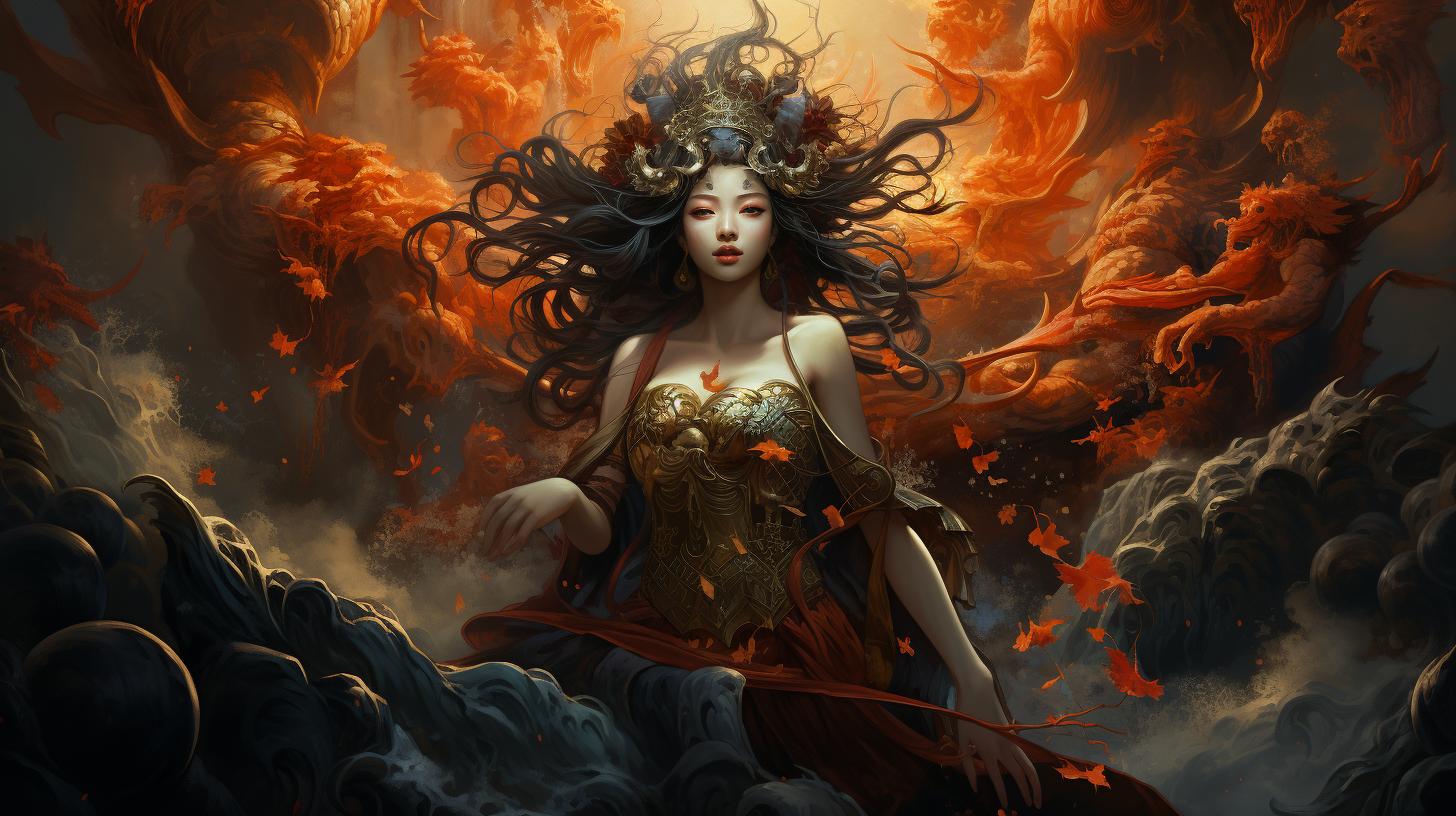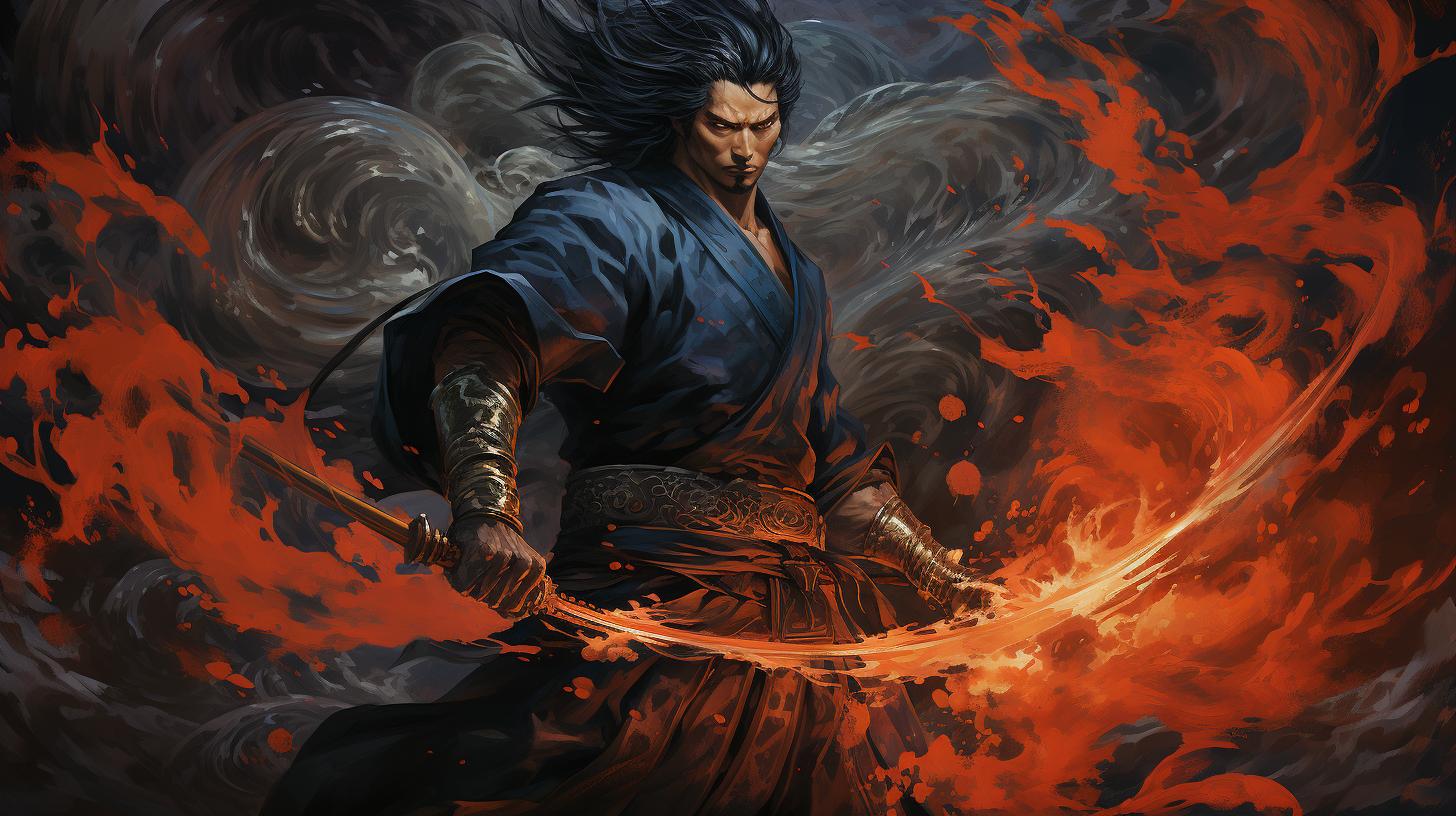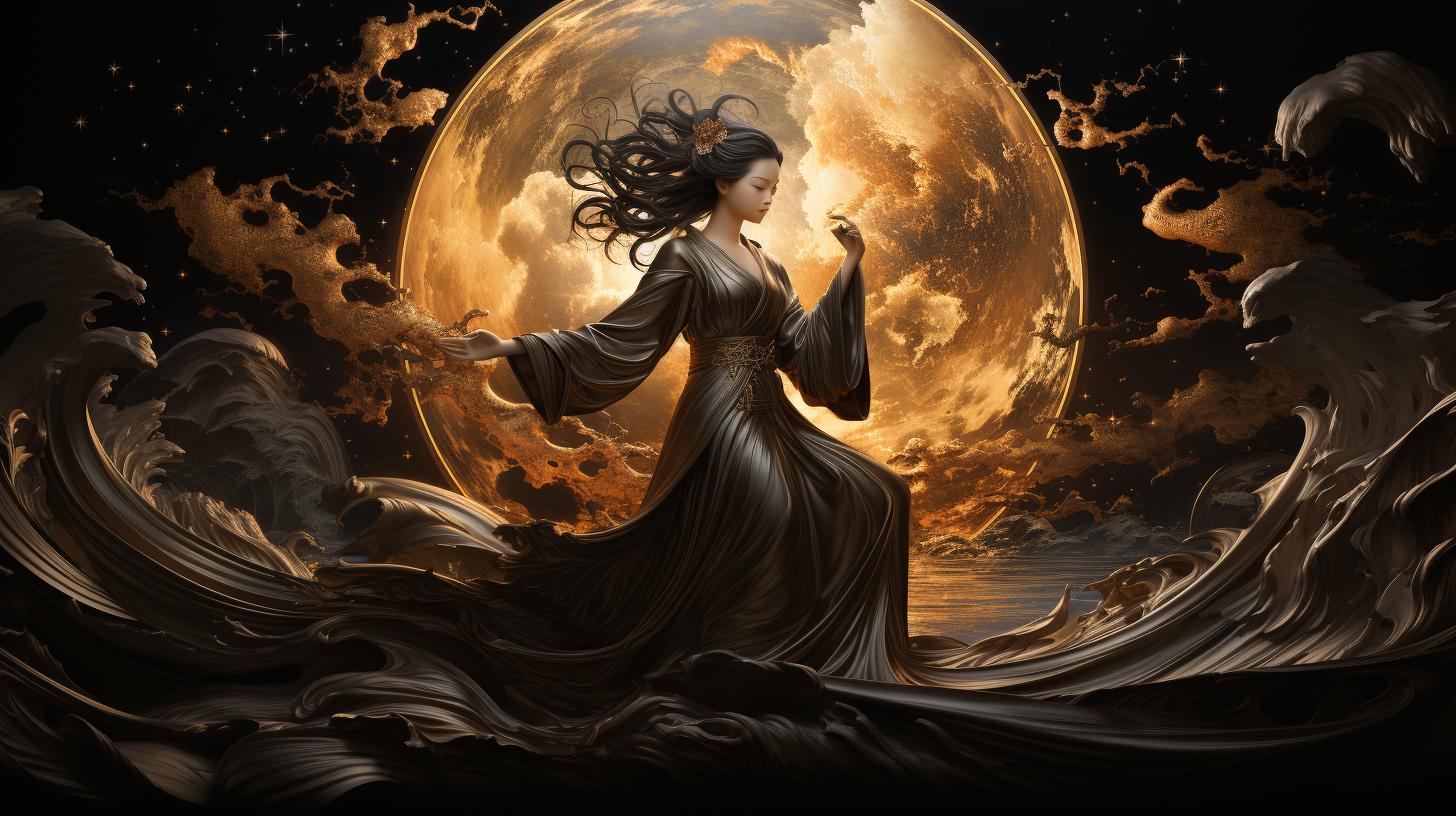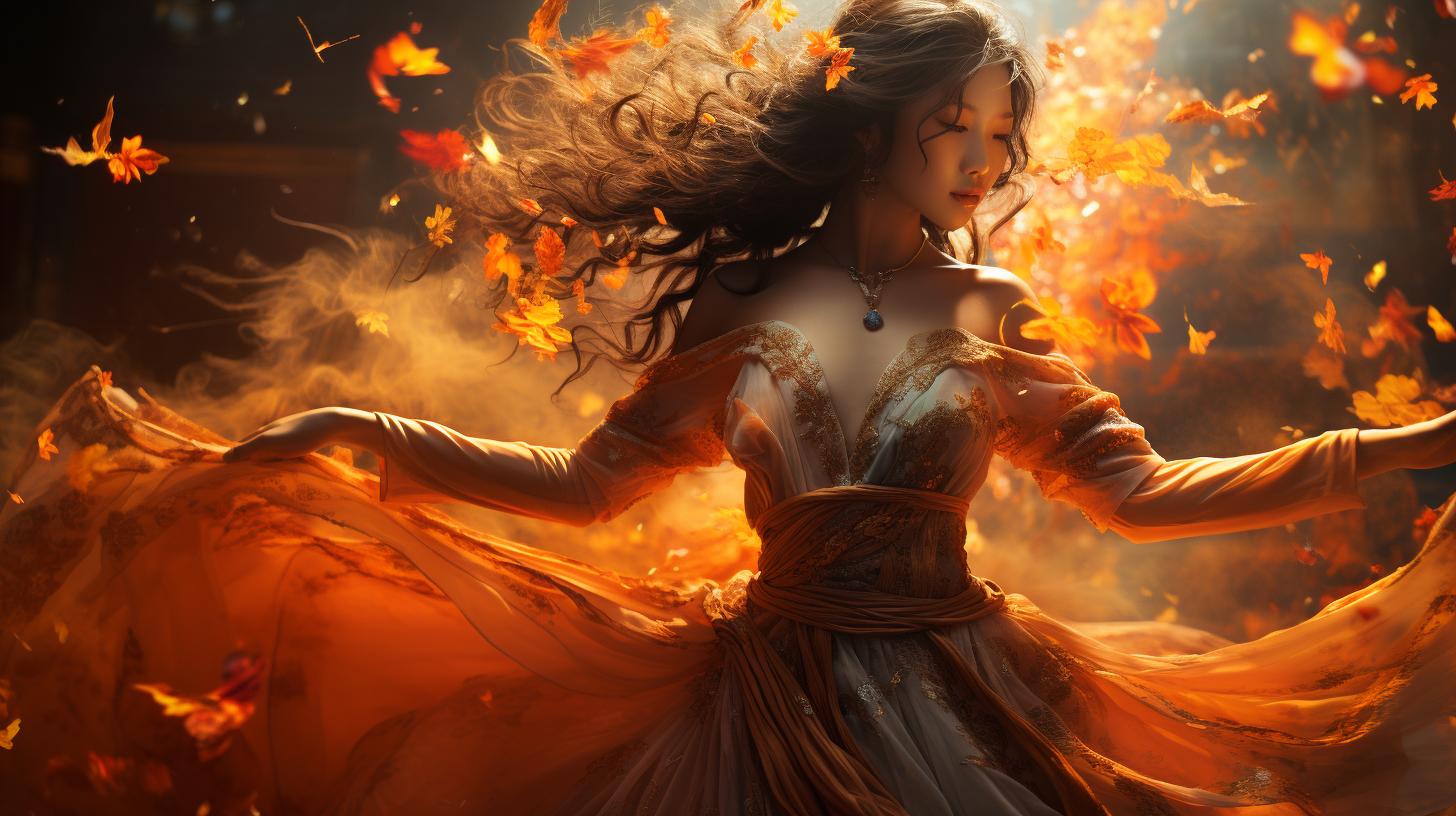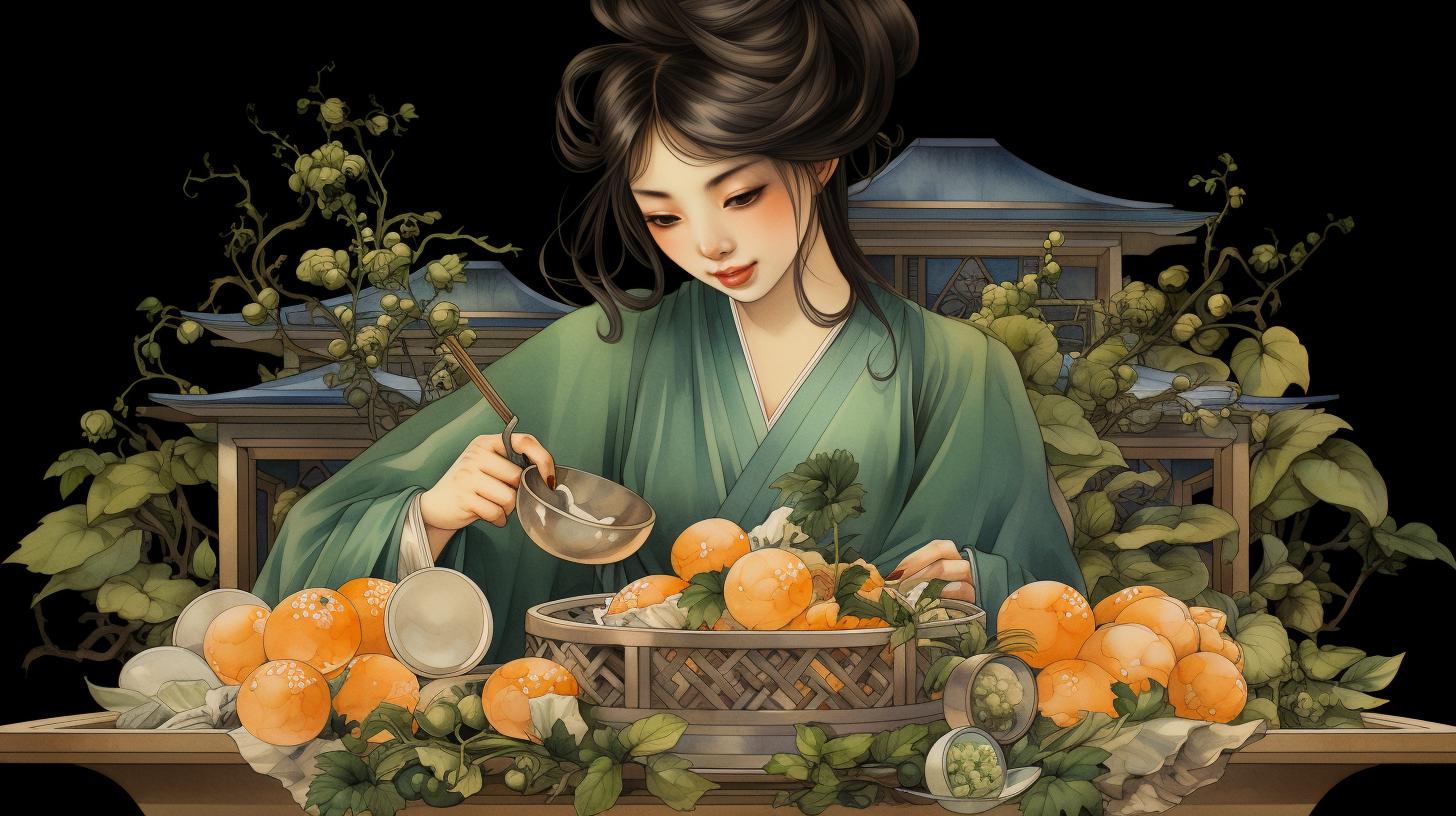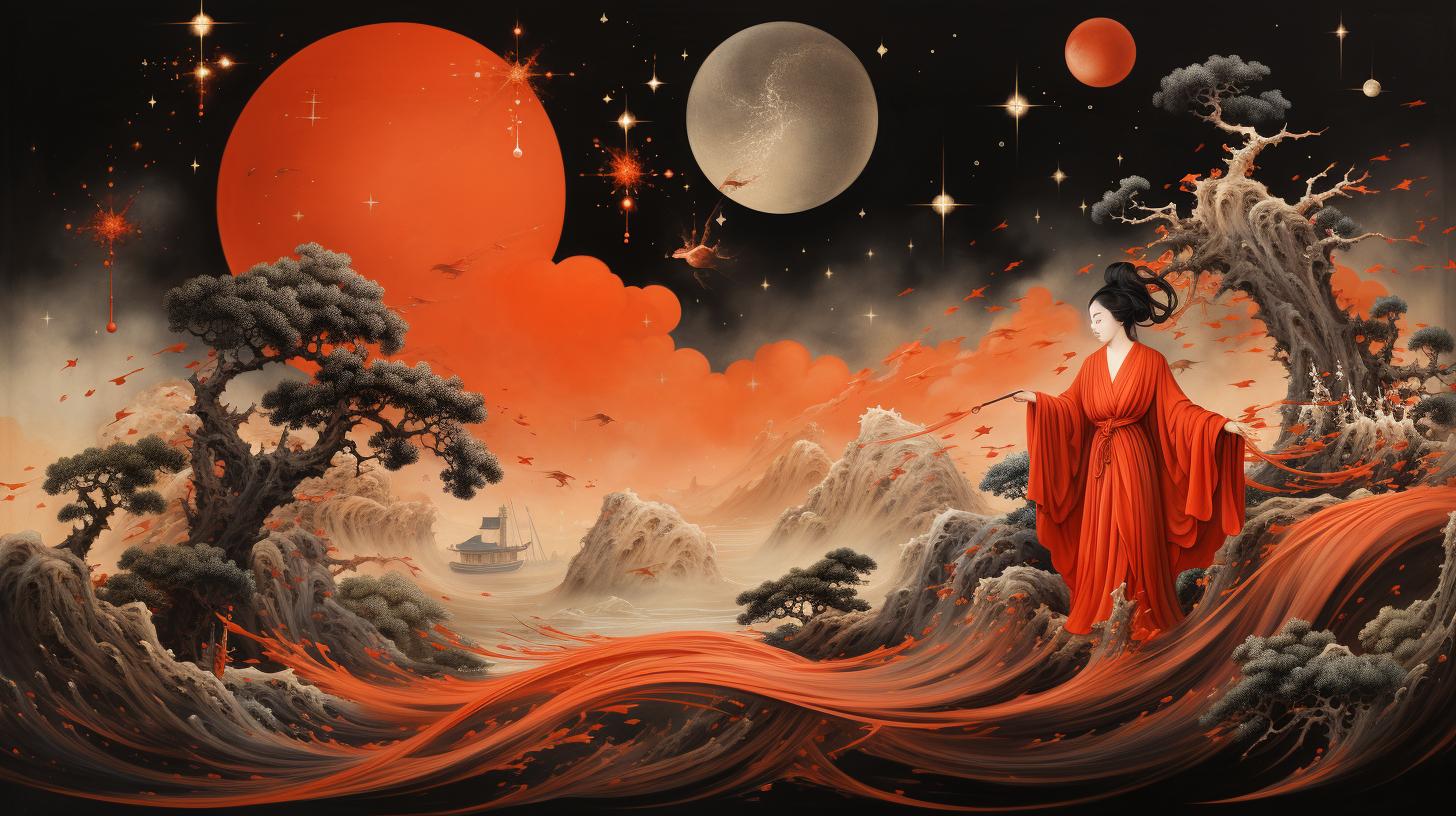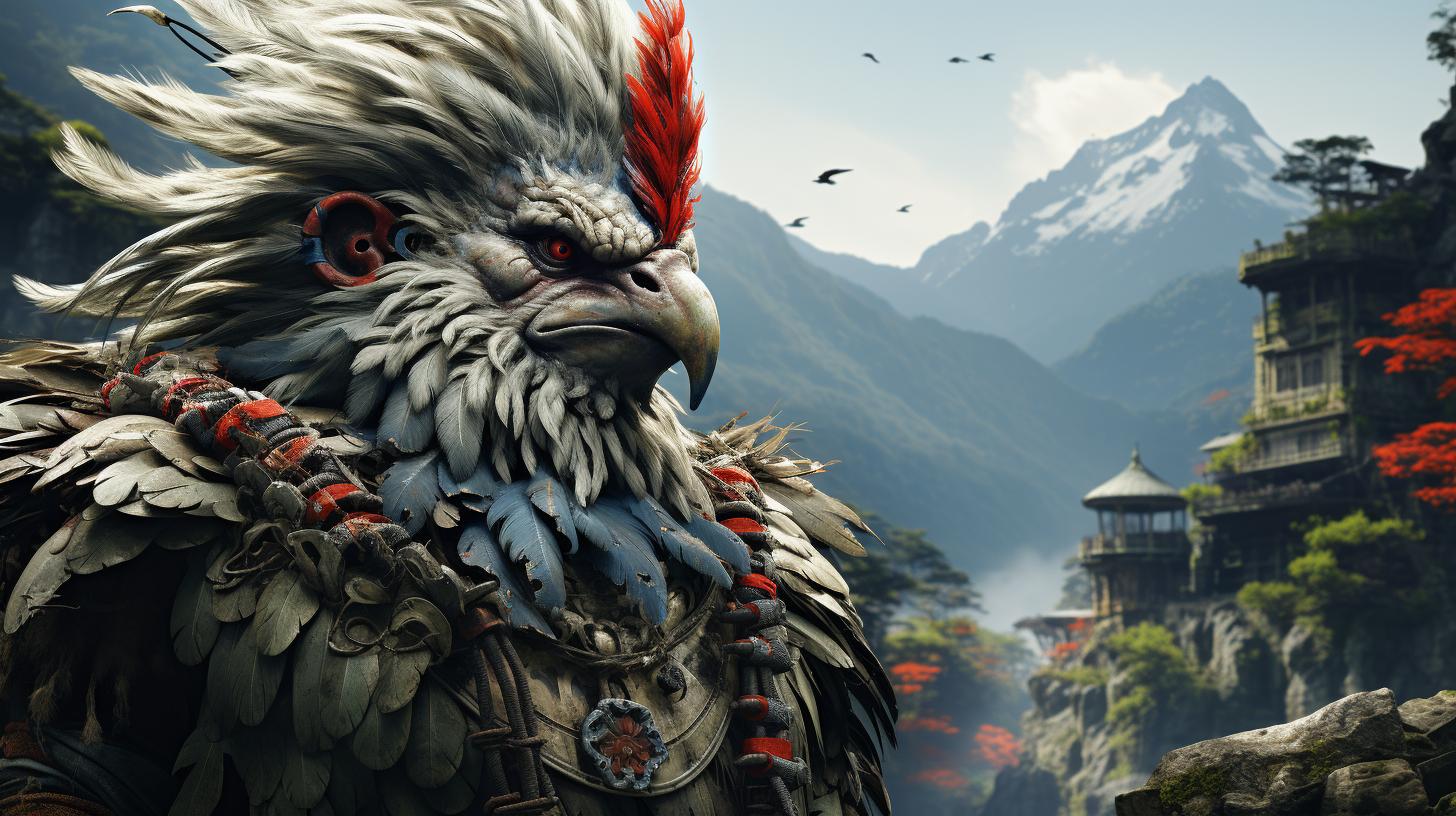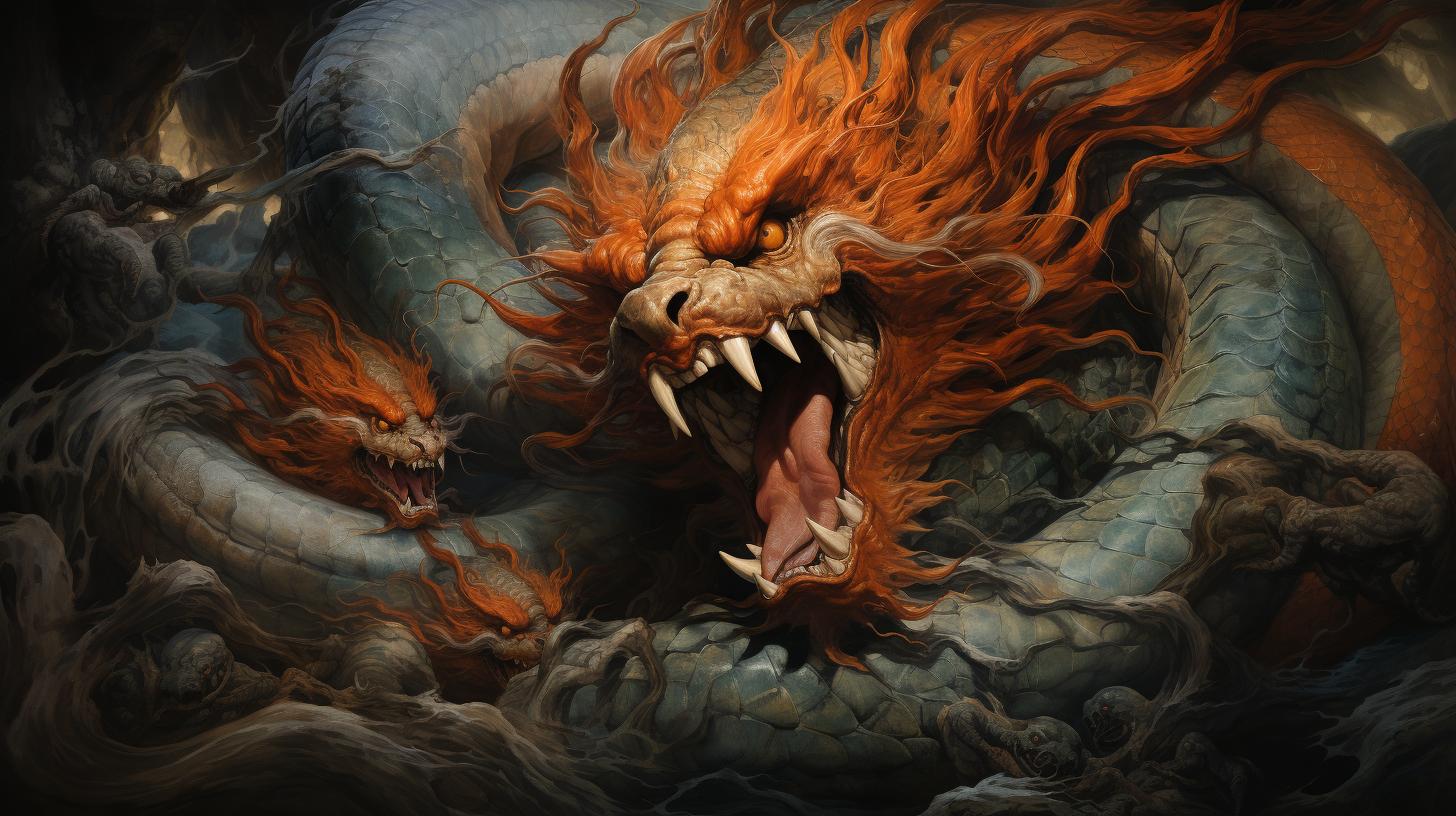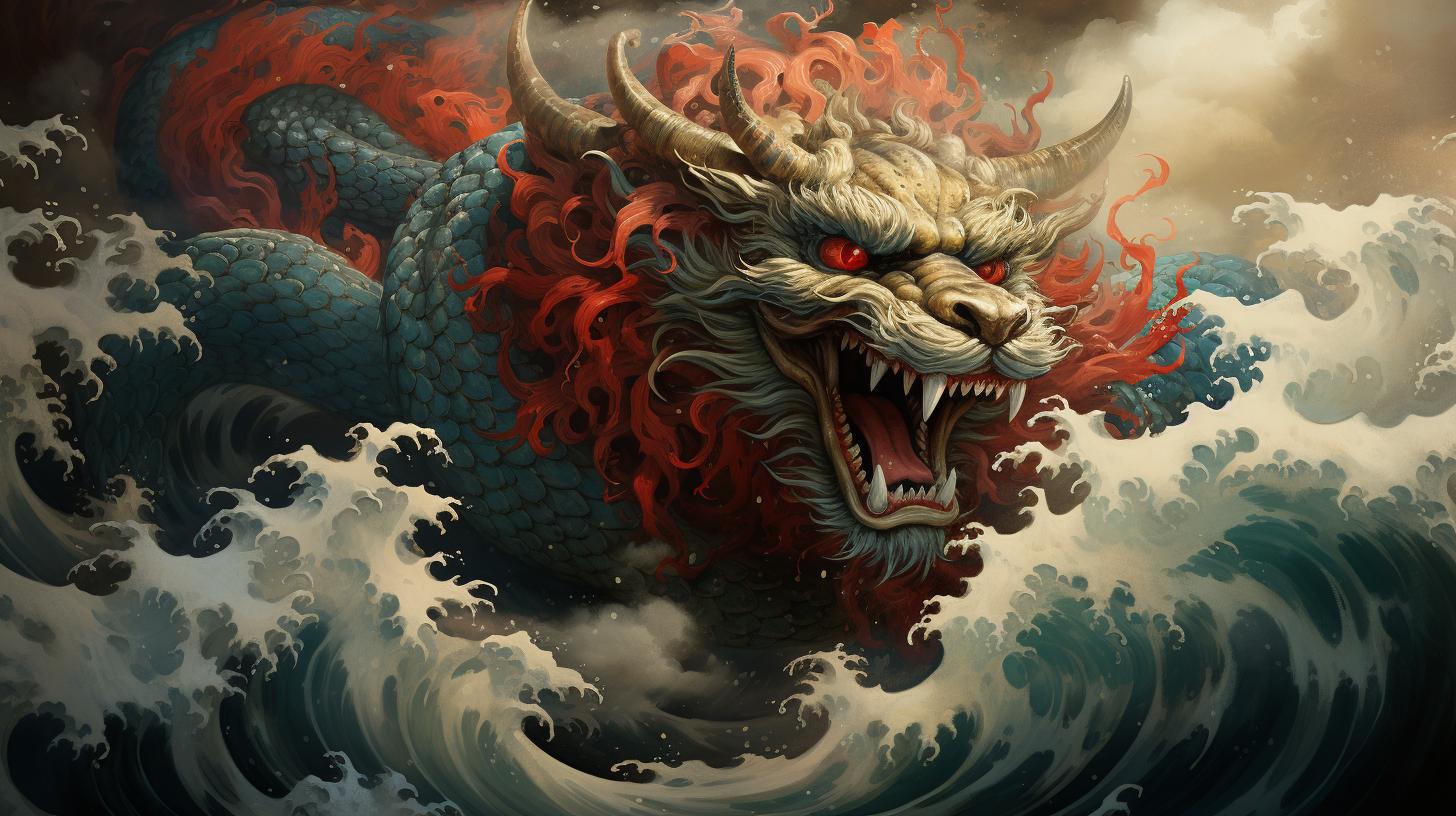Hiruko God: Exploring the Mythology and Legends Surrounding the Japanese Deity
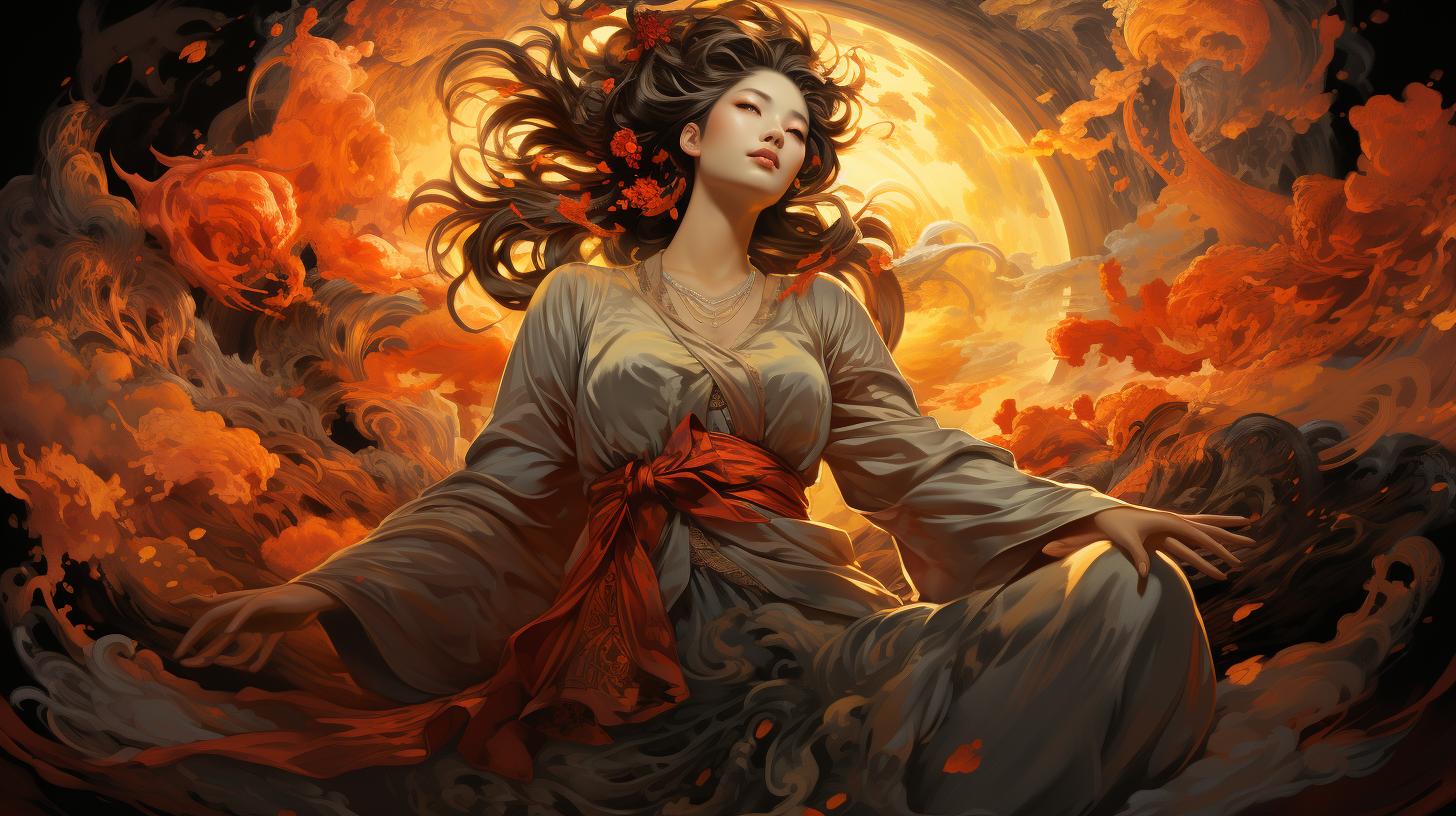
Hiruko god, a deity in Japanese mythology, is mentioned in ancient records such as Kojiki and Nihon Shoki. Hiruko was abandoned by his parents, Izanagi and Izanami, due to his physical deformities.
He is associated with Ebisu, the god of fishing and commerce, and many coastal regions in Japan have shrines dedicated to Hiruko. The scroll depictions show playful interactions between Hiruko, Ebisu, and Daikoku, representing the belief that these gods bring blessings and prosperity to their worshipers.
Hiruko in Ancient Japanese Records
The ancient Japanese records, Kojiki and Nihon Shoki, shed light on the intriguing story of Hiruko, a deity with a fascinating mythology. Let’s delve into the details and uncover the tales surrounding this enigmatic figure.
Kojiki: Uncovering Hiruko’s Story
In the Kojiki, one of Japan’s earliest written chronicles, Hiruko’s narrative unfolds. It reveals that Hiruko was carried on a camphor wood raft and abandoned, due to his physical deformities, by his parents, the esteemed gods Izanagi and Izanami. This act led to Hiruko’s connection to both tragedy and hope alike.
Hiruko’s Journey on a Camphor Wood Raft
According to the Kojiki, Hiruko embarked on his journey, drifting on a raft made of valuable camphor wood. This symbolic journey represents his separation from his divine parents and an uncertain destiny that awaited him at the shores of Japan.
Ties to Ebisu and Other Gods
Within the Kojiki, we discover the association between Hiruko and Ebisu, renowned as the god of fishing and commerce in coastal regions of Japan. The legends intertwine, suggesting that Ebisu took on the role of protecting and serving Hiruko, providing him solace and support.
Nihon Shoki: Hiruko’s Presence in Historical Accounts
In the Nihon Shoki, another essential historical record, Hiruko’s presence is further emphasized. This text provides additional insights into his role and significance within Japanese mythology.
The Role of Hiruko as a Son of the Sun
One interpretation found in the Nihon Shoki suggests that Hiruko is considered a child of the sun, symbolizing his connection to celestial powers. This depiction adds to the complexity of Hiruko’s character and the divine lineage he embodies.
Ebisu’s Protection and Service to Hiruko
The Nihon Shoki reinforces the role of Ebisu as a guardian and servant to Hiruko. This collaboration between the two deities further emphasizes their intertwined existence and underscores the belief in their combined abilities to bring blessings and prosperity.
Hiruko, Ebisu, and Daikoku: Depictions and Beliefs
Hiruko, the abandoned deity in Japanese mythology, shares an intriguing connection with Ebisu and Daikoku. Scroll representations offer a glimpse into the playful interactions between these gods, reflecting the beliefs and reverence associated with their presence.
In this section, we delve into the captivating depictions of Hiruko, Ebisu, and Daikoku, exploring their significance and the blessings they are believed to bring.
Scroll Representations of the Gods
Within the scroll depictions, we encounter vivid portrayals of the gods’ interactions.
Hiruko, with his physical deformities, is depicted alongside Ebisu and Daikoku, illustrating their harmonious bond. These scrolls serve as visual interpretations of the divine connection between the gods, capturing the essence of their roles in Japanese mythology.
Playful Interactions between Hiruko, Ebisu, and Daikoku
The scroll representations showcase playful exchanges between Hiruko, Ebisu, and Daikoku. Their interactions are filled with symbolism, reflecting the benevolent nature of these deities. Through their joyful encounters, these gods embody the spirit of camaraderie and prosperity, inspiring those who worship them.
Belief in their Fortune-Bringing Abilities
A belief deeply ingrained in Japanese culture is the idea that Hiruko, Ebisu, and Daikoku bring blessings and good fortune to their devotees. The scroll depictions serve as visual reminders of this belief, reaffirming the faith in the prosperity they bestow upon those who revere them.
Through offerings and prayers, followers seek the divine favor of these gods, hoping for abundance and success in their lives.
Hiruko, Ebisu, and Blessings
As worshippers embrace the symbolism behind Hiruko, Ebisu, and Daikoku, they find solace in the blessings attributed to these deities. The presence of Hiruko, despite his initial abandonment, becomes a testament to the resilience and compassion that underlies his association with Ebisu. Together, they serve as beacons of hope, reminding believers of the potential for prosperity and abundance that accompanies their devotion.
Significance for Worshipers and Followers
For those who revere Hiruko, Ebisu, and Daikoku, these gods hold immense significance. Their devotion and offerings are expressions of gratitude and hope, as they seek the blessings and good fortune associated with these deities.
By recognizing the divine presence within their lives, followers celebrate the potential for growth, wealth, and happiness that stems from their connection to Hiruko, Ebisu, and Daikoku.
Spreading Good Fortune and Prosperity
The mythological tales surrounding Hiruko, Ebisu, and Daikoku carry messages of prosperity and good fortune.
As believers hold onto the belief in the blessings bestowed by these deities, they share their faith with those around them, propagating a sense of hope and abundance. The legends of these gods continue to inspire individuals to seek their favor, as they strive for a life filled with success and blessings in the years to come.
.

